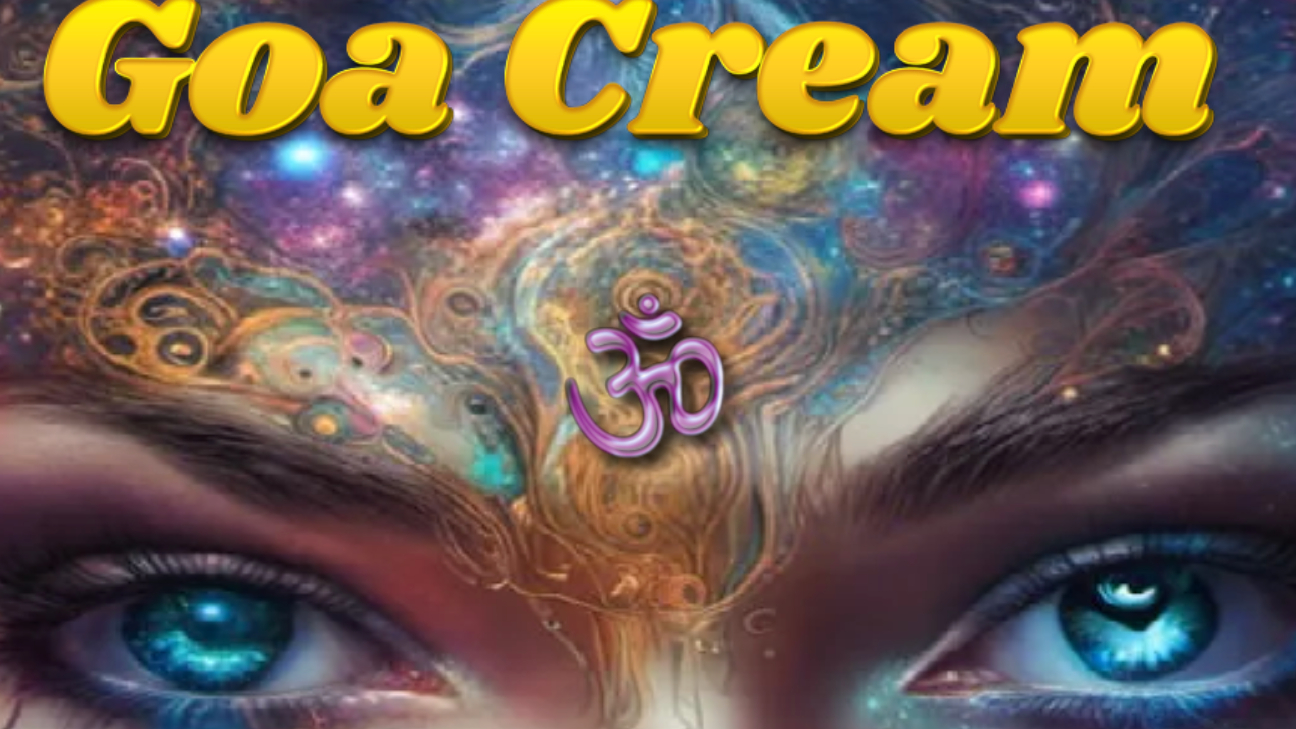In pictures: Panda Bear's Lisbon studio
The Animal Collective man and Daft Punk collaborator talks gear
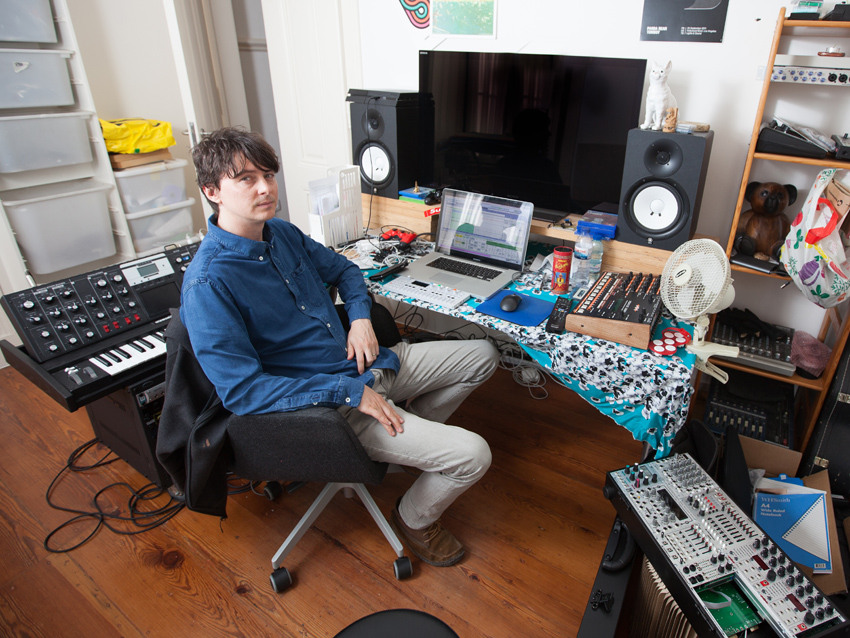
Welcome
Some people’s work rate is sent to shame you. None more so than that of Mr Noah Lennox - or Panda Bear as he’s also, more commonly, known.
As if being one quarter of the wondrous Animal Collective or contributing vocals to Daft Punk’s Doin’ It Right wasn’t enough, Noah has just unveiled his fifth solo offering, Panda Bear Meets the Grim Reaper, and what a fine musical offering it is.
Fashioned in his Lisbon home studio, the new album was produced with former Spaceman 3 honcho Sonic Boom (Pete Kember) and, as with previous Panda Bear outings, showcases Noah Lennox’s deft touch with a melody and joyous mash-up approach to guitars, samples and synths.
We hooked up with Lennox, both at home in Lisbon and at the West London home of his label, Domino Records, to discuss the tools of his trade. For the full interview, check out the February issue of Future Music (288), which is on sale now.
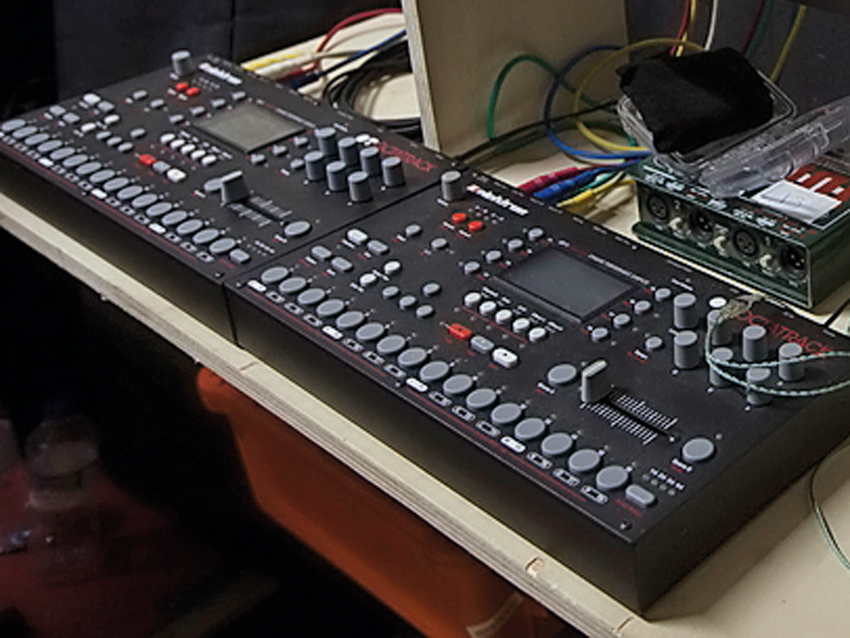
Elektron Octatrack
“I do love the Octatrack. I’m not a big fan of using a laptop on stage myself. I’m not opposed to it, I just never felt like I could figure out a way of doing it where I felt like I was still performing or that there was a flexibility to it. I know Daniel from Oneohtrix and, talking to him, he’s found a way to achieve that, but I haven’t really sorted it yet.
So, the Octatracks are essentially my way of having Ableton in a box if you deal with it a specific way. I’m basically taking stems of the studio recording over seven of the tracks, using the eighth as a master channel. Typically I’ll take drums, bass, weird percussion stuff, weird sound stuff and maybe a main melodic component so I know everything’s set up with that template.
There are two Octatracks, both of which contain the exact same information on the card and I kind of mix from one song to the next. Some nights I do it better than others but it’s essentially DJing the stems of the record.”
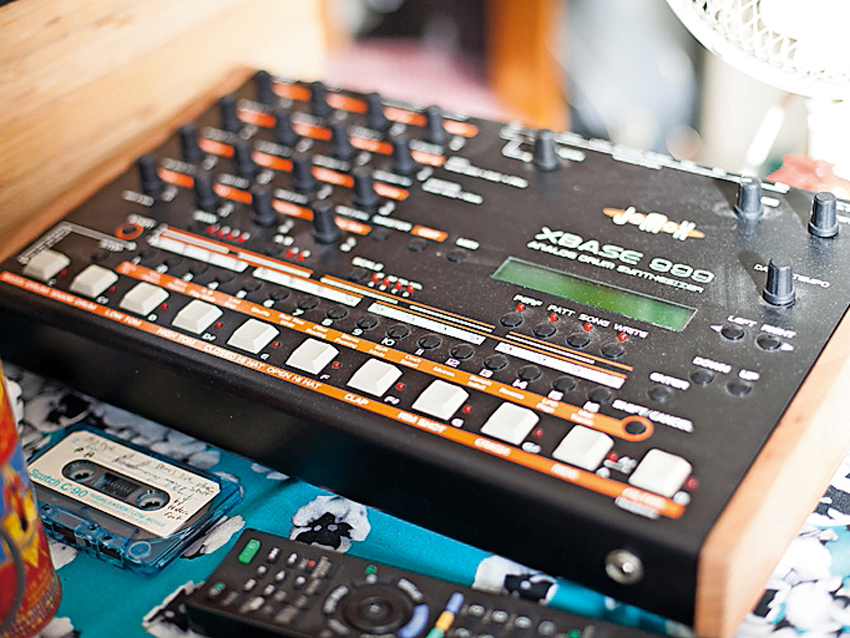
JoMox Xbase 999
“I use a JoMox XBase 999 drum machine, which I really love. I just got a couple of JoMox Eurorack drum modules too and they’re sweet”
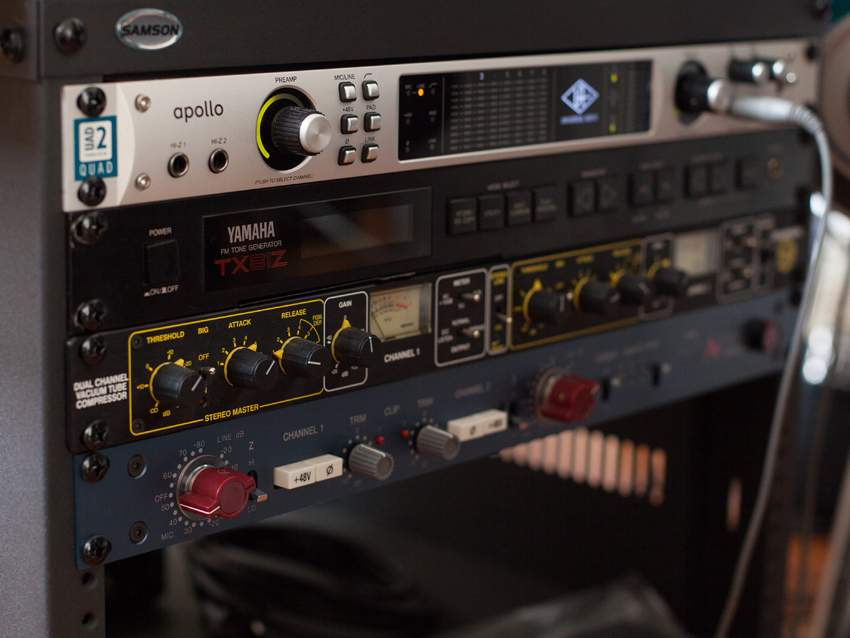
Interface and outboard
“I have a Universal Audio Apollo soundcard and I’d say that maybe about 70% of the plugins that I use are Universal Audio. I have a Drawmer compressor, which I rarely use, and a Neve 1073DPD, which I use as a mic preamp. It’s just two channels but it’s that classic, warm Neve quality. I’ll send pretty much everything through the Neve then into the Apollo.”
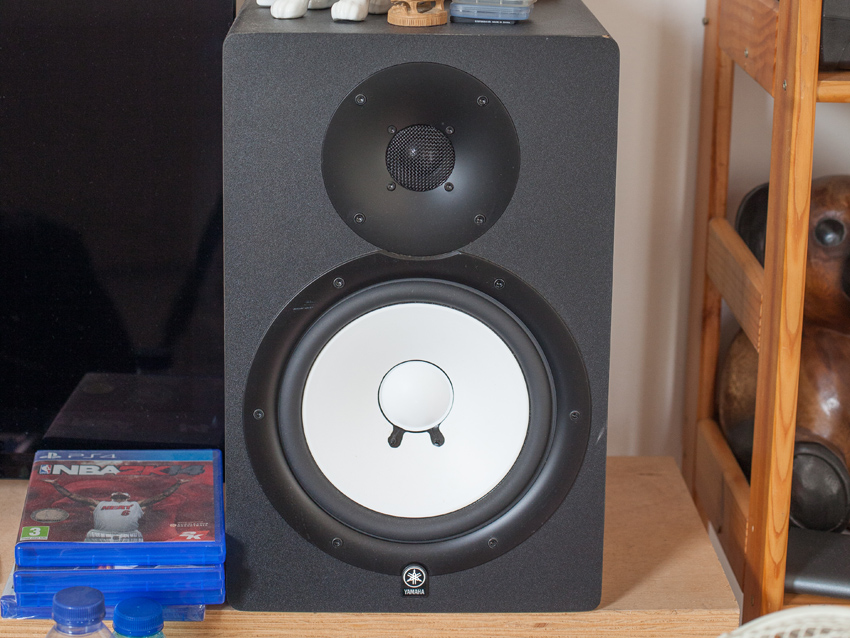
Yamaha HS50m monitors
“I’ve got a pair of Yamaha HS50m monitors, the new versions of the NS10s. I really like those a lot and I don’t have a second set of monitors as I’ll usually just A/B on laptop speakers, especially as I suspect the percentage of people who actually listen to their music on laptop speakers is shockingly high!”
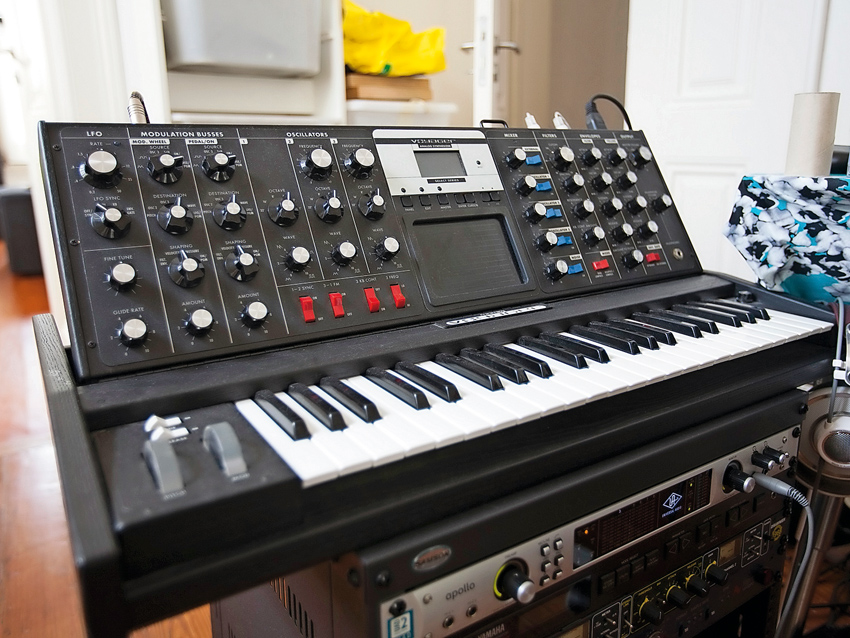
Moog Voyager
“Maybe 90% of the bass sounds on the album are from [the Moog Voyager]. They’re brilliant synths and more convenient than the old ones with their MIDI capabilities. They still go out of tune at times - as we found when Animal Collective took one out on tour. I think that might be something to do with power/voltage issues between different countries.”
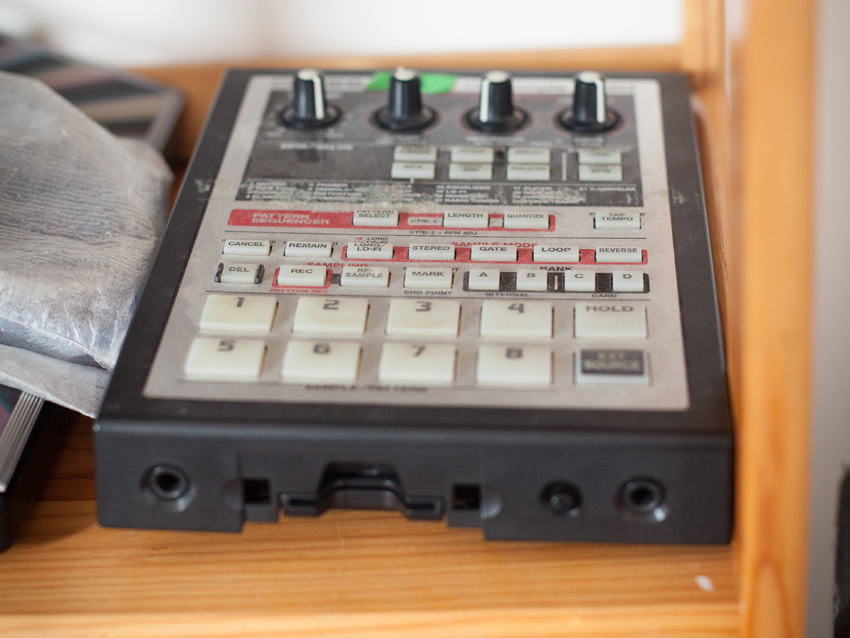
Roland SP-303 and SP-555
“I still use the reverbs on them. When the new versions of them came out, Roland switched a lot of the algorithms for the delays and the reverbs, which were the two things I used the most. So, I’ll still fire them up if I want that particular type of reverb.
“There’s also a certain quality to them - maybe the way they compress the sound or something - that, if I’m looking for that then I’ll go to them too.”
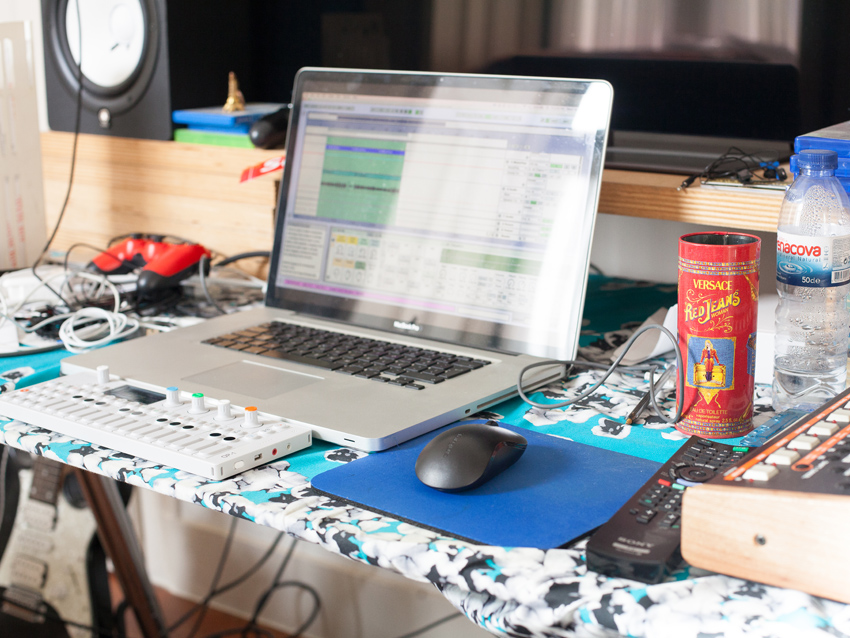
Ableton Live
“My friend Bradford Cox of Deerhunter was the first one to mention it. We went on tour together and we’d talk about how I used to use a cassette eight-track and that was essentially how I’d learned to record music and it was my favourite thing to use. I’d been using Cubase and he said I should really try Ableton - that coming from a four-track/eight-track mindset you could use it that way, and it was easy to use. It was on his advice that I started using it.”

Future Music is the number one magazine for today's producers. Packed with technique and technology we'll help you make great new music. All-access artist interviews, in-depth gear reviews, essential production tutorials and much more. Every marvellous monthly edition features reliable reviews of the latest and greatest hardware and software technology and techniques, unparalleled advice, in-depth interviews, sensational free samples and so much more to improve the experience and outcome of your music-making.


![PRS Archon Classic and Mark Tremonti MT 15 v2: the newly redesigned tube amps offer a host of new features and tones, with the Alter Bridge guitarist's new lunchbox head [right] featuring the Overdrive channel from his MT 100 head, and there's a half-power switch, too.](https://cdn.mos.cms.futurecdn.net/FD37q5pRLCQDhCpT8y94Zi.jpg)








